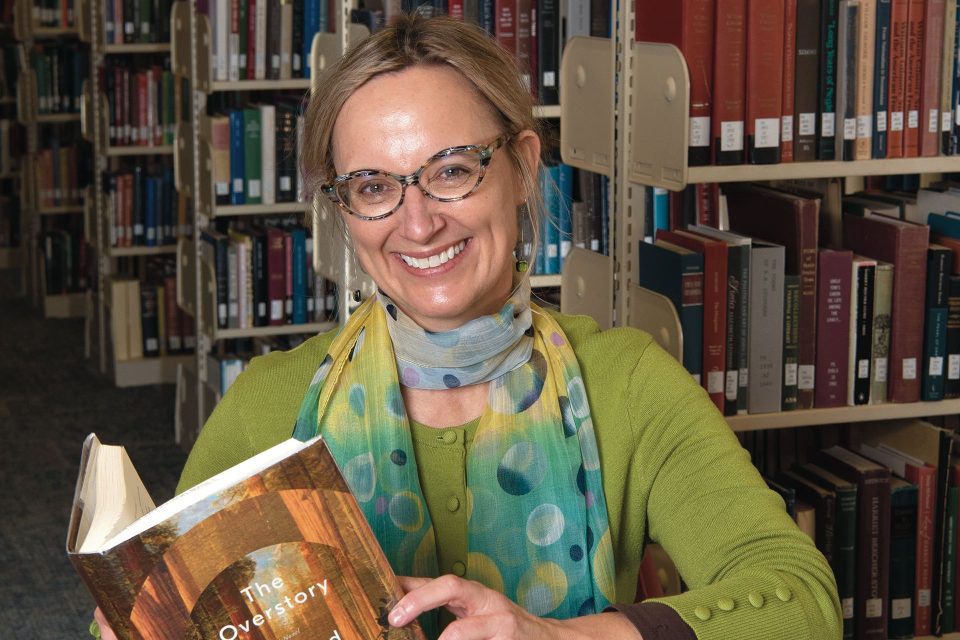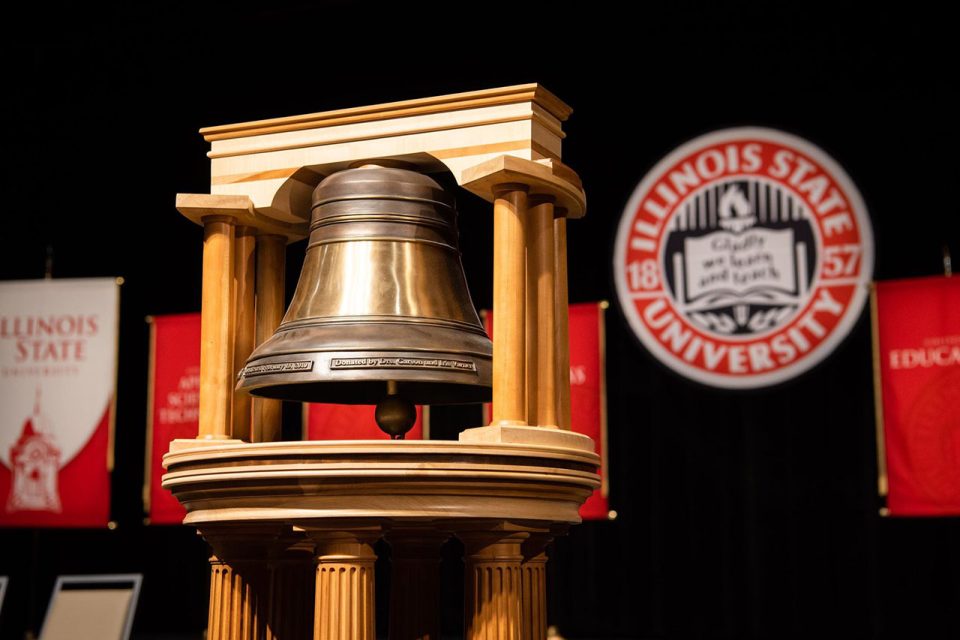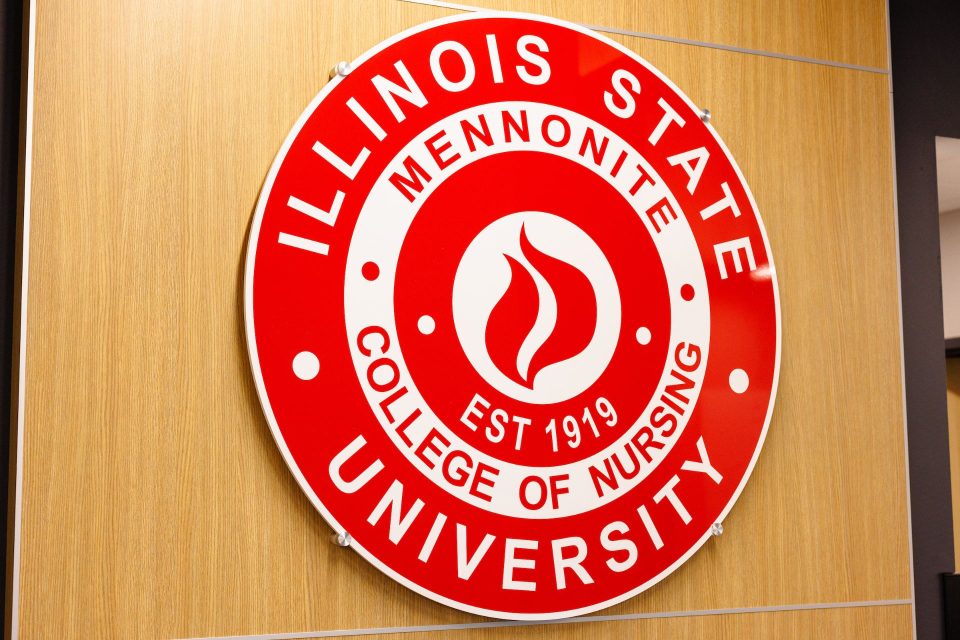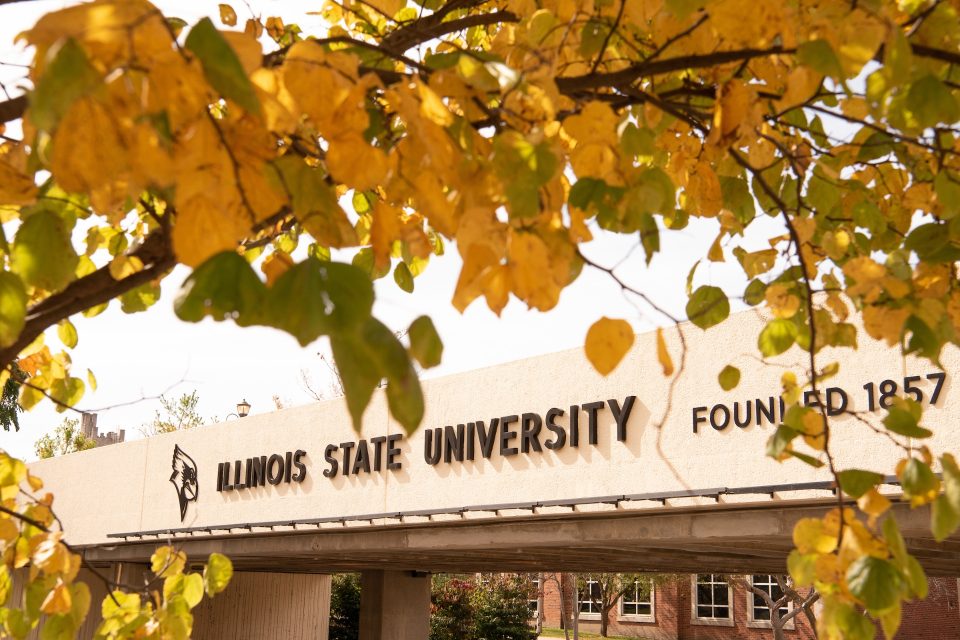Redbird Scholar Q&A: 5 questions for Office of Student Research Director Gina Hunter
Since opening in 2019, the Office of Student Research (OSR) has created and funded hands-on research experiences for hundreds of students across Illinois State. However, quantifying the office’s exact impact on student research at the University isn’t easy.
“It is really difficult,” said OSR Director Gina Hunter. “One question people always ask me is, ‘How many students do research?’ And I say, ‘Well, what counts as research?’ Because every discipline has its own definition of research. A larger question is, Where does it happen? It happens all over the place in courses, through grants, and as volunteer opportunities, and it happens in ways that we as a campus don’t capture. And this is my number one problem, and one that I would like to solve.”
Appears In Redbird Scholar: Fall 2025 Fixed focus: Photography professor reclaims Filipino dignity stripped by colonialism Illinois State’s new simulation lab trains DCFS investigators Milner Library’s open-access agreements level academic publishing field Doctoral student bridges theory and practice to become a better teacher New program pays ‘novice’ student researchers to work under faculty mentors Redbird Scholar grant and research news (fall 2025) Redbird media: Check out the latest #RedbirdScholar books (fall 2025) Vertical Farm grows sustainable food production, student learning opportunities Math grad student is Research Assistant of the Year for division of U.S. Army Corps of Engineers Read AllIn a way, it’s a good problem to have. Because of the University’s focus on providing a premier undergraduate education, a larger percentage of Redbird undergrads engage in research than their counterparts at large research institutions who may have to wait until their graduate years to conduct research, according to Dr. Hunter.
OSR has dramatically increased research opportunities for both graduate and undergraduate Redbirds. In the last seven years, OSR has supported over 500 students with more than half a million dollars in grants to support their research-related endeavors. One grant program specifically targets undergraduate students, and last spring semester, Hunter launched NeSTeR (Novice Student Researchers), a federal work study program that paid five freshmen and sophomores to research under faculty across campus.
“I can’t say enough about faculty taking these new students under their wing and providing them with this exposure to research,” Hunter said. “This is where ISU really excels. It’s that individualized attention, which is something we pride ourselves on. And at a larger research institution, you would almost never get this kind of opportunity, and then it would be only for honors students.”
Hunter’s office has also helped scores of students to present at conferences across the country and around the world by providing travel grants students can match with other campus support. Closer to home, the office collaborates with University Galleries to organize the annual Image of Research competition and exhibit.
Hunter has organized all of these programs and initiatives under the direction of Associate Vice President for Research Craig C. McLauchlan, and with support from Office of Research staff Barb Rexroat and Matt Upholz. A part-time graduate assistant helps with day-to-day tasks. Hunter balances the demands of administering the OSR with her responsibilities as a professor of anthropology and as a researcher who published the book Edible Insects: A Global History in 2021. She will be stepping down from OSR and retiring in 2026.
In the following Q&A, Hunter discussed OSR’s accomplishments, the importance of student research, and the future of OSR.
Which of OSR’s accomplishments are you most proud of?
The boring part, in a way, because as an administrator, you set up the systems, and that takes a lot of work. And it’s not just me. This is Barb and Matt and Craig, and input from faculty. And so I think just setting up the office from ground zero to now, a program that is known on campus, that faculty know about—that’s the thing I’m most proud of.
Did you launch the student grant programs, or had those already existed?
That was all new. A long time ago, ISU did have some funding for student research. They discontinued it until they were able to commit more funds. Once my office was started, it was given a budget to work with. We also had (Illinois State University) Foundation funds from State Farm. That’s when we launched what was at first called the Undergraduate Research Support Program. Then we decided it needed different names, and so we now call them the FIREbird (Faculty-mentored Independent Research Experiences) and BirdFEEDER (Fund for Experimentation, Enquiry and the Development of Student Research). We have a consistent number of students who apply.
What are other ways you have supported student research?
One thing my office took over from the Honors Program is the Barry Goldwater Scholarship award. It’s a very prestigious national program that sets up those students for a future career as research scientists. Honors did great, but they had other awards to administer in their program, and this one squarely falls into student research. Because I’m closer to seeing what’s happening in research and with the faculty, it’s easier for me to recruit student applicants. This is the fourth straight year that we’ve gotten an award. (Editor’s note: Six Illinois State students have received the award in the last four years.) I am super excited about that. That is not an easy award to win.
Why is research important at an institution focused predominantly on undergraduate education? And why do we have this office?
Part of it is that we are a premier institution for undergraduate education, and research is a best practice in education. So for one, it’s about pedagogy, and it’s about providing students with that excellent education.
Another piece is that we have faculty researchers who are doing great, exciting work. And research does not happen alone. It requires many people working together, and students do a lot of the day-to-day work that is scientific inquiry, whether it’s checking transcriptions, or coding videos, or working in a lab. Science is built on this very tedious, systematic work. And students do a lot of that work.
So we want to both increase the number of students who can get that hands-on experience, and it’s good for our faculty researchers. So I think that’s why student research is important. And then we also, as an institution, we need to make clear to the public, to our stakeholders, we need to say, ‘Hey, this is the good work that we do here.’ And somebody has to take on that job of telling those stories. So I think that’s why this office is important.
What is the future of OSR?
I like to think that OSR has a good foundation with the programs we are running and all we have done. However, I believe that we will need to expand our fundraising and outreach to get more support for student research. Also, I would like Illinois State to compete for the AURA (Award for Undergraduate Research Accomplishments). It is awarded through the Council on Undergraduate Research and recognizes campuses that have followed best practices for student research and have signature programs that are really laudable. ISU has many such programs.
I have loved being director of OSR, but it’s time for new ideas and energy. There is much yet to be done!
Latest Publications
- Presidential Speaker Series returns this fall with AI pioneer Kevin Surace, November 4The Presidential Speaker Series returns this fall to feature the "Father" of the virtual assistant and AI innovator, Kevin Surace, on Tuesday, November 4, 2025, at 7 p.m., in the Brown Ballroom, Bone Student Center.
- Celebrating Excellence: The LOVE Award at Illinois State UniversityIllinois State University proudly presents the Living Our Values in Excellence (LOVE) Award, a monthly recognition celebrating individuals and groups who exemplify the University’s core values in their daily work. These values include Excellence in Teaching, Learning, and Scholarship; Individualized Attention; Equity, Diversity, Access, and Belonging; Collaboration; Community and Civic Engagement; Respect; and Integrity. Whether
- Illinois State University launches new artificial intelligence lab for health research initiative with funding from National Institutes of HealthIllinois State University has launched an interdisciplinary PAIR project made possible through funding from the National Institutes of Health’s AIM-AHEAD PAIR seed program. The project is a collaboration between Illinois State’s School of Information Technology and Mennonite College of Nursing to use AI for early detection of Atrial Fibrillation.
- BN Innovation Hub takes another step forwardThe Bloomington-Normal Innovation Hub (BN Hub) took another step forward September 24 by officially launching its advisory board. The board is designed as a collaborative forum to foster innovation, cross-sector connection, and strategic alignment among institutions and organizations in the region with the express purpose of achieving the goals laid out in the BN Hub’s strategic plan.
- RISE Town Hall forums, October 22 and 23Join us for RISE Town Hall forums scheduled for Wednesday, October 22, 2025, at 2:30 p.m., and Thursday, October 23, 2025, at 10 a.m., in the Prairie Room, Bone Student Center. We will share updates regarding the new budgeting framework, process, and timeline, and answer questions.
- Nominations sought for Grabill-Homan Community Peace PrizeThe peace and conflict resolution studies program at Illinois State University is accepting nominations and self-nominations for the Grabill-Homan Community Peace Prize, which is named for Joseph L. Grabill and the late Gerlof D. Homan, Illinois State University professors emeriti of history who helped establish the interdisciplinary Peace and Conflict Resolution Studies Program.













